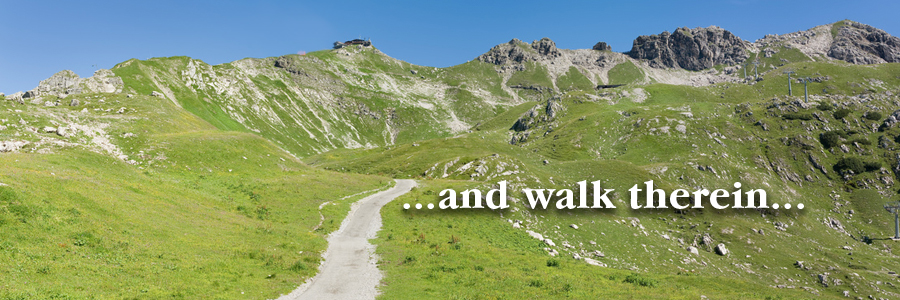
SEVEN SIGNS OF A FALLING NATION
By Bruce A. Ritter – with permission
From REAL TRUTH Magazine
Extracts from the article
No Government, Kingdom or society lasts forever. Here are seven factors that contributed to ancient Rome’s demise—warning signs that exist today within the nations of the British and American peoples.
History reveals that all Governments, Empires and Kingdoms of men, no matter how grand, no matter how powerful, ultimately fall. It happened to ancient Egypt, Assyria and Babylon. Even Rome was not exempt; though it dominated much of Europe, Northern Africa, the Middle East and parts of the Near East, and lasted for 500 years, the Roman Empire ultimately fell.
There is an old and popular saying: “Rome was not built in a day.” Likewise, the Roman Empire did not fall in one night; its decline was gradual. Not long after it rose to world dominance, several factors were already at work contributing to the Empire’s ultimate demise.
Similarly, these factors are at work among the societies of the British and American peoples—and serve as warning signs of a civilization destined to fall.
The Family Unit
Few understand that the family unit is the basic building block of every thriving society. Within the family, young minds are first taught the importance of building character, controlling one’s emotions, setting worthwhile goals, striving for excellence—or at least this should be the case, as it was generations ago.
At the start of the Roman Empire, fathers took seriously their role in properly instructing, training and educating their sons, and mothers taught their daughters as well. The example of strong and active parents daily ingrained into children the importance of obedience, deference to civic authority and respect for the laws of the land.
But as new generations came of age, the family weakened and fractured. Husbands and wives gave in to the pulls of human nature to engage in widespread adultery, inevitably leading to increasing rates of broken marriages. Divorce for virtually any reason became legal; wives only had to say to their husbands three times in succession, “I divorce you!” to bring it to pass.
Also, parents came to spoil their children, who then grew up to become lazy adults who were irreverent, disobedient to authority and had little respect for the elderly or the “old paths” of social norms and values.
Likewise, the family unit in America, Britain, Australia, Canada and other sister nations of the West is under constant assault. Broken marriages and fractured households are now the norm.
Children are growing up pampered and catered to, never learning to accept and recover from setbacks—never instructed to think of others before themselves.
They live in a fantasy world in which they “must” have mobile phones; they “need” their privacy; they “have rights.”
As with ancient Rome, the British and American peoples (like their forefathers, the ancient Israelites) ignore God’s counsel: “Stand ye in the ways, and see, and ask for the old paths.” (Jer. 6:16).
Education
The Roman Empire began with an educational system that emphasised developing character, morality, patriotism and social values in young lives. The goal was to develop the whole person.
But this was eventually replaced by an emphasis almost exclusively on academics, with no moral or ethical absolutes defining right and wrong.
Similarly, character development, patriotism and civic duty are seldom taught in the public schools of the West, where God and the Bible are banished, and morally unchecked “creative expression” is encouraged.
Religion
The Romans were pagan idol worshippers who took the gods of the Greeks and gave them Roman names. Accompanying the assortment of false gods was lascivious religious rituals and customs. Temple prostitution, drunkenness and other vices that appealed to the flesh were common across the Empire. Similar to the Greeks, the Romans worshipped mythological figures who freely gave in to carnal desires—deceiving, stealing, getting drunk and committing fornication, adultery, even rape!
Today, millions of Britons, Americans and others claim to worship only one deity, the God of the Bible—yet their actions scream something quite different!
Pleasure-Seeking
The Romans were masters of extreme pleasure-seeking. They entertained themselves with gladiators (rock stars of the day) and gambled on who would live or die. They enjoyed the sight of Christians, Jews and other enemies of the state being eaten alive by wild animals shipped from exotic regions. Residents were proud of their lavish villas, imported cuisine and fine attire. They thrilled themselves with plays, bathhouses, indoor pools and drunken parties held in the honour of Bacchus, the false god of wine and sensual pleasures.
Similarly, in these modern times, American and Britons entertain themselves, with mindless “reality” television programs driven by deception and gratuitous sex. With super-star athletes who proudly show off their tattoos and pride themselves on their multi-million-dollar contracts – yet are void of prudence, judgment and character.
Advertising, news media and Hollywood promotes materialism and covetousness. A society that loves to emulate the wanton lifestyles portrayed in movies and pursue sports, gambling, theatre, music and other distractions over seeking true values is destined to collapse – as did Rome.
The Economy, Government and the Military
To compensate for inflation, Roman Emperors in the second and third centuries produced more coins, but these were no longer made of silver and gold alloys, which had become scarce. Roman currency dwindled in value.
The citizenry strained under heavy tax burdens, as the Government left no stone unturned in seeking potential revenue sources.
Taxes combined with inflation and a desire to maintain an unrealistic standard of living have driven a growing majority to live on credit and practise the materialistic principle of “live for today, forget about tomorrow.” Consumers survive payslip to payslip, partly due to wrong financial priorities and living beyond their means. A new car or home suddenly becomes a “necessity” based on the maximum amount of a “pre-qualified” bank loan, rather than actual needs.
British, Canadian, Australian and American consumers are strapped with debt, resulting in a staggering number of defaulted home loans and personal bankruptcies.
As in ancient Rome, strong belief in self-determination and self-reliance has been replaced with an attitude of expecting something for nothing. Government-run systems originally intended to assist those in genuine need are now considered an entitlement.
And just as the Roman army was overstretched and over extended in foreign lands, so is the American military. Roman soldiers, once known for their precision in battle and rigid obedience to authority, eventually became demoralised. The same can be said of U.S. troops.
A Kingdom That Will Never Fall
There is a future Government that will be established by a perfect Leader, as foretold in Isaiah 9: “For unto us a Child is born, unto us a Son is given: and the government shall be upon His shoulder: and His name shall be called Wonderful, Counsellor, The mighty God, The everlasting Father, The Prince of Peace. Of the increase of His government and peace there shall be no end” (vs. 6-7).







